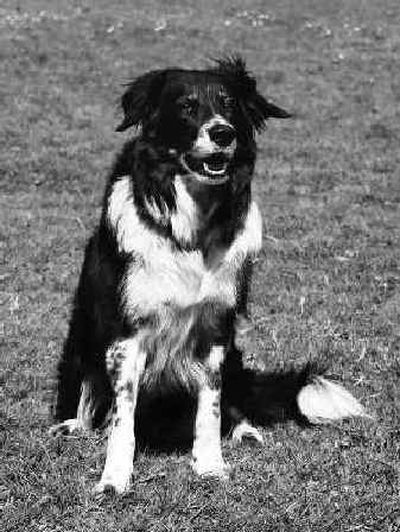Dogs do understand, new research suggests

WASHINGTON – As many a dog owner will attest, our furry friends are listening. Now, for the doubters, there is scientific proof they understand much of what they hear.
German researchers have found a border collie named Rico who understands more than 200 words and can learn new ones as quickly as many children.
Patti Strand, an American Kennel Club board member, called the report “good news for those of us who talk to our dogs.”
“Like parents of toddlers, we learned long ago the importance of spelling key words like bath, pill or vet when speaking in front of our dogs,” Strand said. “Thanks to the researchers who’ve proven that people who talk to their dogs are cutting-edge communicators, not just a bunch of eccentrics.”
The researchers found that Rico knows the names of dozens of play toys and can find the one called for by his owner. That is a vocabulary size about the same as apes, dolphins and parrots trained to understand words, the researchers say.
Rico can even take the next step, figuring out what a new word means.
The researchers put several known toys in a room along with one that Rico had not seen before. From a different room, Rico’s owner asked him to fetch a toy, using a name for the toy the dog had never heard.
The border collie, a breed known primarily for its herding ability, was able to go to the room with the toys and, seven times out of 10, bring back the one he had not seen before. The dog seemingly understood that because he knew the names of all the other toys, the new one must be the one with the unfamiliar name.
“Apparently he was able to link the novel word to the novel item based on exclusion learning, either because he knew that the familiar items already had names or because they were not novel,” said the researchers, led by Julia Fischer of the Max Planck Institute for Evolutionary Anthropology in Leipzig.
A month later, he still remembered the name of that new toy three out of six times, even without having seen it since that first test. That is a rate the scientists said was equivalent to that of a 3-year-old.
Rico’s learning ability may indicate that some parts of speech comprehension developed separately from human speech, the scientists said.
“You don’t have to be able to talk to understand a lot,” Fischer said. The team noted that dogs have evolved with humans and have been selected for their ability to respond to the communications of people.
Katrina Kelner, Science’s deputy editor for life sciences, said “such fast, one-trial learning in dogs is remarkable. This ability suggests that the brain structures that support this kind of learning are not unique to humans and may have formed the evolutionary basis of some of the advanced language abilities of humans.”
But some experts and trainers were unimpressed.
“I sat down and calculated my dog’s vocabulary and it was several hundred words,” said Dr. Mark Plonsky, professor of animal behavior and psychology at the University of Wisconsin-Stevens Point. “From my point of view this isn’t earth shattering.”
He said there were a few studies in the early 1900s that reached similar conclusions about dogs forming advanced vocabularies.
Plonsky said this type of learning is common to many species.
David Reinecker, a dog trainer and animal behavioralist in California, said future studies should focus on several dogs of different types at the same time.
“My own personal opinion is it needs a lot more study and research,” he said.